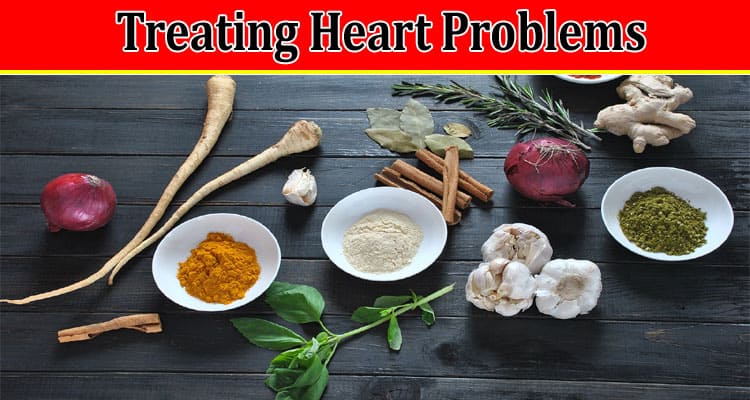Heart problems are a significant health concern worldwide, affecting millions of people each year. While conventional medical treatments play a crucial role in managing heart conditions, there is growing interest in complementary and alternative approaches, including the use of herbs. Herbs have been used for centuries in various cultures to support heart health and address cardiovascular issues.
In this blog, we will explore common herbs used in treating heart problems, their historical significance, and their potential benefits. Whether you’re looking to enhance your heart health or seeking natural ways to complement your existing treatment, this guide will provide valuable insights into the world of herbal remedies for a healthier heart.
Traditional Use of Herbs for Heart Problems
Throughout history, herbs have played a vital role in managing heart problems, passed down through generations and across diverse cultures. In ancient civilizations like Egypt, Greece, and China, herbal remedies were employed to promote heart health and address cardiovascular concerns. These traditions were grounded in the belief that nature provides us with potent remedies for maintaining a healthy heart.
Common Herbs for Heart Health
Garlic: Renowned for its cardiovascular benefits, garlic contains compounds that support blood pressure regulation and cholesterol levels. You can easily incorporate garlic into your diet or take it as a supplement.
Hawthorn: With a long history of use in traditional medicine, hawthorn is known for its ability to improve blood circulation, strengthen the heart muscle, and reduce blood pressure.
Turmeric: Curcumin, the active ingredient in turmeric, has anti-inflammatory properties that may benefit heart health. You can add turmeric to your cooking or try turmeric supplements.
Ginger: Ginger can help lower blood pressure and reduce cholesterol levels, contributing to a healthier heart. Enjoy ginger in tea, soups, or as a spice in your meals.
Cayenne Pepper: The capsaicin in cayenne pepper supports heart health by promoting better circulation and reducing inflammation. Sprinkle cayenne on your food or add it to beverages for a spicy kick.
Herbal Supplements and Heart Health
When considering herbal supplements for heart health, it’s important to weigh the pros and cons. Herbal capsules and tinctures offer convenience and precise dosing, but they may come with potential side effects or interactions. It’s crucial to consult with a healthcare provider before incorporating them into your regimen, especially if you’re taking medications.
Herbal teas, on the other hand, provide a soothing and enjoyable way to support your heart. Popular blends like hibiscus, green tea, and hawthorn can be brewed easily. However, be mindful of caffeine content and choose caffeine-free options if needed.
Lifestyle Factors in Heart Health
A heart-healthy lifestyle goes beyond herbal remedies. A balanced diet rich in fruits, vegetables, and whole grains can lower your risk of heart disease. Regular exercise helps maintain a healthy weight and keeps your heart strong.
Managing stress is crucial, as chronic stress can harm your heart. Techniques like meditation, deep breathing, and yoga can be beneficial. Quitting smoking and limiting alcohol intake also play significant roles in cardiovascular health.
Combining Herbs with Conventional Treatments
While herbs can complement conventional heart treatments, it’s essential to collaborate with your healthcare provider. They can advise you on potential interactions and ensure that herbal remedies align with your overall treatment plan.
Monitoring your progress is key. Regular check-ups and communication with your healthcare team will help you make informed adjustments. With proper guidance and supervision, you can explore the synergy between herbs and conventional medicine for optimal heart health.
Case Studies and Success Stories
Real-life experiences provide valuable insights into the effectiveness of herbs in managing heart problems. Many individuals have reported positive outcomes from integrating herbs into their heart health routines. These success stories demonstrate the potential benefits of herbal remedies, inspiring others to explore natural approaches to heart care.
From improved blood pressure control to enhanced circulation, these stories highlight the diverse ways herbs can contribute to better heart health. While individual results may vary, these cases underscore the importance of holistic approaches to cardiovascular well-being.
Conclusion
In conclusion, the world of herbs offers a rich tapestry of options for those seeking to promote heart health. Garlic, hawthorn, turmeric, ginger, and cayenne pepper are just a few of the many herbs that have shown promise in supporting cardiovascular well-being. Whether you choose to incorporate herbs as supplements or enjoy them in teas and meals, they can be valuable additions to your heart health journey.
Remember that herbs should complement, not replace, conventional treatments. Consult with your healthcare provider before starting any herbal regimen, especially if you are taking medications. By embracing a heart-healthy lifestyle, combining herbs with medical guidance, and drawing inspiration from real-life success stories, you can embark on a holistic path to a healthier heart.





